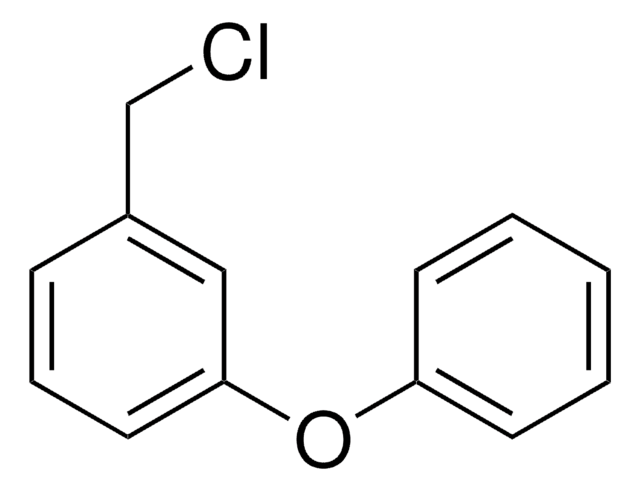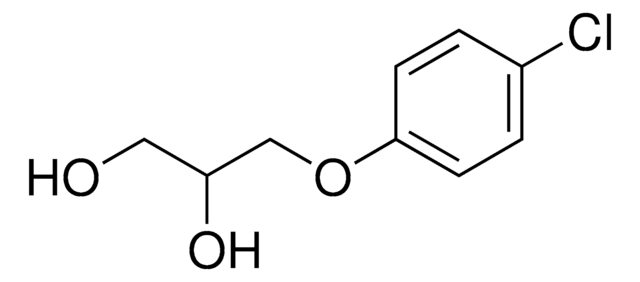190284
3-Phenoxybenzyl alcohol
98%
Synonym(s):
(3-Phenoxyphenyl)methanol, 1-Hydroxymethyl-3-phenoxybenzene, 3-(Hydroxymethyl)diphenyl ether, 3-Phenoxybenzenemethanol, m-Phenoxybenzyl alcohol
About This Item
Recommended Products
vapor pressure
0.1 mmHg ( 37.7 °C)
Quality Level
Assay
98%
refractive index
n20/D 1.591 (lit.)
bp
135-140 °C/0.1 mmHg (lit.)
density
1.149 g/mL at 25 °C (lit.)
functional group
hydroxyl
phenoxy
SMILES string
OCc1cccc(Oc2ccccc2)c1
InChI
1S/C13H12O2/c14-10-11-5-4-8-13(9-11)15-12-6-2-1-3-7-12/h1-9,14H,10H2
InChI key
KGANAERDZBAECK-UHFFFAOYSA-N
Looking for similar products? Visit Product Comparison Guide
Application
Signal Word
Warning
Hazard Statements
Precautionary Statements
Hazard Classifications
Acute Tox. 4 Oral
Storage Class Code
10 - Combustible liquids
WGK
WGK 3
Flash Point(F)
588.2 °F
Flash Point(C)
309 °C
Personal Protective Equipment
Choose from one of the most recent versions:
Already Own This Product?
Find documentation for the products that you have recently purchased in the Document Library.
Our team of scientists has experience in all areas of research including Life Science, Material Science, Chemical Synthesis, Chromatography, Analytical and many others.
Contact Technical Service









